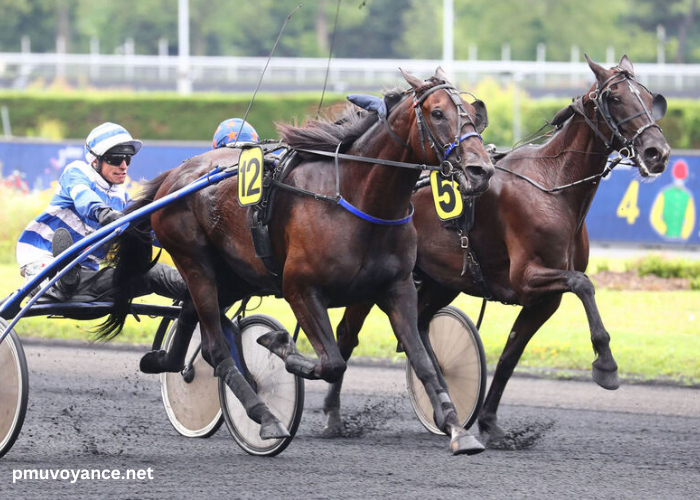In the world of horse racing, jargon and specialized terms play a significant role in shaping the narrative of the sport. Among these terms, “Les 3 Tocards” stands out as a fascinating concept that has intrigued racing enthusiasts and professionals alike. This article delves deep into the meaning of “Les 3 Tocards,” its origins, implications in the racing world, and how it affects bettors and fans. Whether you are a seasoned racegoer or a newcomer to the sport, understanding “Les 3 Tocards” can enhance your appreciation and strategic approach to horse racing.
What Are “Les 3 Tocards”?
“Les 3 Tocards” translates to “The 3 Outsiders” in English. In horse racing terminology, this phrase refers to the three horses in a race that are considered to have the least chance of winning based on various factors such as form, odds, and past performance. These horses are often viewed as underdogs or long shots, making them intriguing candidates for bettors who are looking for potentially high returns.
Origins of the Term
The term “Les 3 Tocards” has its roots in French horse racing, where “tocard” is a colloquial expression used to describe horses that are not expected to perform well. Over time, this term has become widely recognized and used in the racing community, particularly among French-speaking bettors and enthusiasts. The concept has transcended borders and is now understood and utilized in various racing circles globally.
Understanding the Concept of “Les 3 Tocards”
Factors Influencing a Horse’s Status as a “Tocard”
Several factors contribute to a horse being labeled as a “tocard”:
- Past Performance: Horses with a history of poor performance or inconsistent results are often categorized as “tocards.” Their previous races might show a pattern of underachievement, leading experts to predict a low chance of success in upcoming races.
- Odds: Betting odds are a key indicator of a horse’s perceived chances. Horses with higher odds are generally considered “tocards” because they are less likely to win according to bookmakers and analysts.
- Form: A horse’s recent form plays a crucial role in its classification. Horses that have been struggling to perform well in recent races might be viewed as “tocards.”
- Track Conditions: Sometimes, a horse’s performance can be significantly affected by track conditions. Horses that have not fared well on similar tracks or in adverse conditions might be deemed “tocards.”
Why Bettors Should Pay Attention to “Les 3 Tocards”
While “Les 3 Tocards” are typically seen as the underdogs, they can offer unique opportunities for bettors:
- Value Bets: Betting on outsiders can provide substantial returns if they outperform expectations. The higher the odds, the greater the potential payout.
- Strategic Betting: Including “tocards” in exotic bets, such as trifectas or exactas, can enhance the potential for significant winnings. If one of these outsiders finishes in the top positions, it can lead to impressive payouts.
- Race Dynamics: Sometimes, race dynamics can change unexpectedly. Factors such as changes in track conditions, unexpected weather, or other variables can influence the performance of “tocards.”
How to Analyze “Les 3 Tocards”
To make informed betting decisions involving “Les 3 Tocards,” it’s essential to conduct thorough analysis:
1. Research Recent Performances
Review the recent performances of the horses in question. Look for patterns or trends that might suggest an improvement or decline in their racing ability.
2. Assess Trainer and Jockey Data
The expertise of a trainer and jockey can significantly impact a horse’s performance. Research their track record and recent results to gauge how they might influence the horse’s chances.
3. Evaluate Track Conditions
Examine how the track conditions might affect the horses. Some horses perform better on certain types of tracks or under specific weather conditions.
4. Consider Race Distance
Different horses have different strengths depending on the distance of the race. Assess how the distance might play to the strengths or weaknesses of the “tocards.”
Case Studies: Notable “Les 3 Tocards” Stories
1. The Upset Victory
In a recent major race, one of the “tocards” defied the odds by securing a surprising victory. This case highlights the unpredictable nature of horse racing and the potential rewards of betting on outsiders.
2. The Consistent Performer
Another example involves a horse that consistently performs well as a “tocard” in various races. This horse has become a favorite among experienced bettors who recognize its potential for surprising outcomes.
Conclusion
“Les 3 Tocards” represents a compelling aspect of horse racing that combines unpredictability with opportunity. By understanding the factors that contribute to a horse’s status as a “tocard” and conducting thorough analysis, bettors can make more informed decisions and potentially capitalize on high-value bets. Whether you are an avid racing fan or a casual observer, paying attention to the “3 Tocards” can add an exciting dimension to your horse racing experience.



